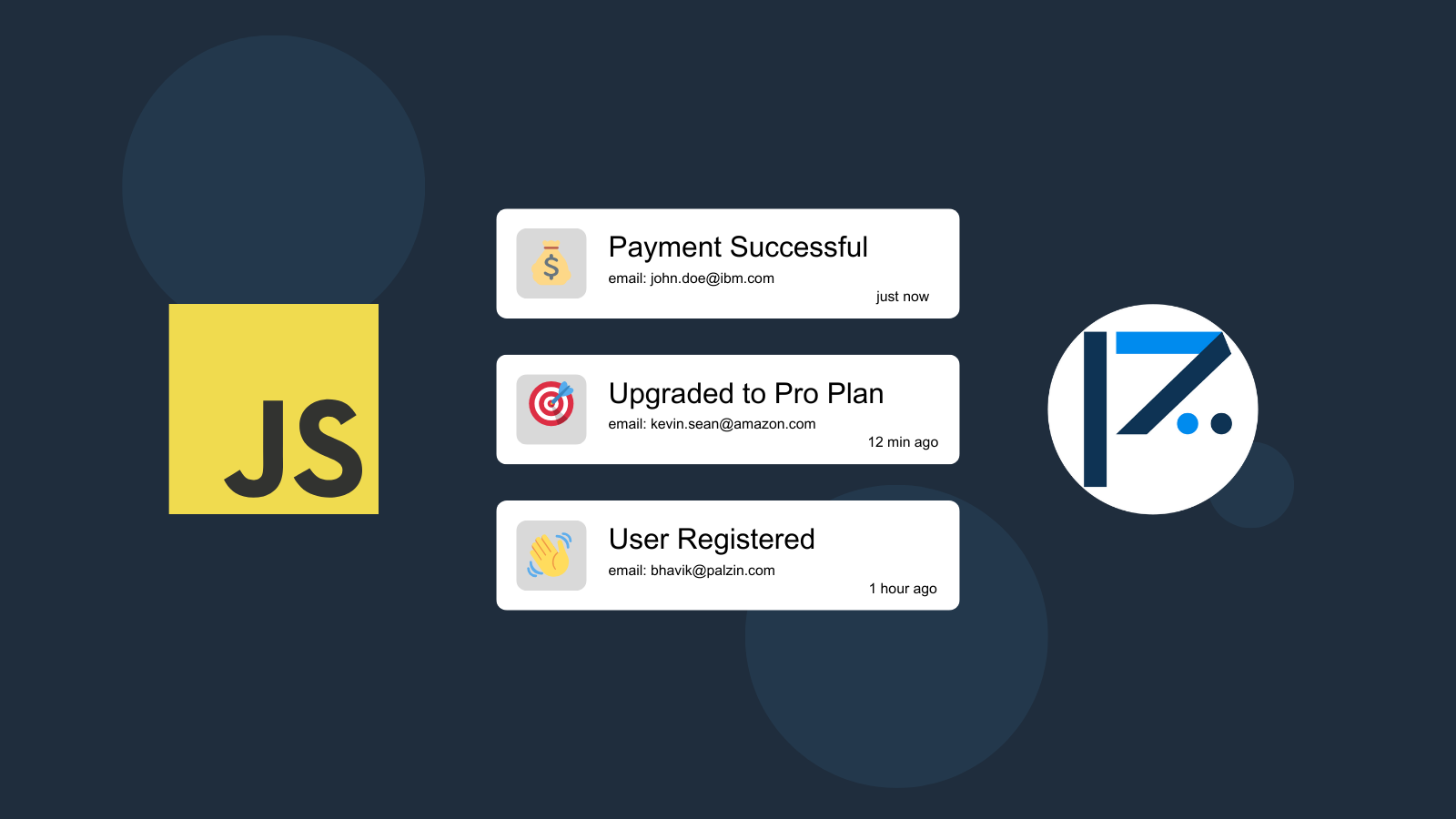
In today's landscape, many services are adopting a pay-as-you-go approach, which can be based on either monthly usage limits or metered usage. This trend is particularly prevalent in cloud computing, software, and various online services. If you are developing a Javascript-based service, you will likely need to establish your usage model and associated limits.
Irrespective of your specific implementation, it becomes essential to create an internal system for tracking usage and setting up notifications to alert you and your team when a user reaches their designated limit. This is a common challenge, as it provides valuable insights into how your users utilize your service, enabling you to enhance your product based on user behavior.
Enter Palzin Track, a service designed to offer real-time event tracking. It serves as an ideal solution for this task and seamlessly integrates with Javascript. Palzin Track simplifies the process of transmitting events to your dashboard and facilitates push notifications whenever critical events occur.
For instance, consider a scenario where you are developing a Javascript-based service that allows users to upload files, but you wish to impose a limit of ten uploads per user. Palzin Track comes to the rescue by enabling you to send events to your dashboard whenever a user uploads a file. Additionally, you can configure a rule to notify you when a user hits the ten-file upload limit. This functionality ensures you are promptly informed when a user reaches their designated threshold, empowering you to take further action as needed.
Connect Palzin Track to JavaScript
Copy the following code snippet to your JavaScript project. Please note that you will need to replace the API token with your own.
Using JavaScript with Fetch
var myHeaders = new Headers();
myHeaders.append("Content-Type", "application/json");
myHeaders.append("Authorization", "Bearer YOUR_API_TOKEN");
var raw = JSON.stringify({
"project": "my-project",
"channel": "limits",
"event": "Usage Limit Exceeded",
"description": "The user has exceeded the usage limit for the service.",
"icon": "🚨",
"notify": true
});
var requestOptions = {
method: 'POST',
headers: myHeaders,
body: raw,
redirect: 'follow'
};
fetch("https://api.palzin.live/v1/log", requestOptions)
.then(response => response.text())
.then(result => console.log(result))
.catch(error => console.log('error', error));
Using JavaScript with jQuery
var settings = {
"url": "https://api.palzin.live/v1/log",
"method": "POST",
"timeout": 0,
"headers": {
"Content-Type": "application/json",
"Authorization": "Bearer YOUR_API_TOKEN"
},
"data": JSON.stringify({
"project": "my-project",
"channel": "limits",
"event": "Usage Limit Exceeded",
"description": "The user has exceeded the usage limit for the service.",
"icon": "🚨",
"notify": true
}),
};
$.ajax(settings).done(function (response) {
console.log(response);
});
Using JavaScript with XHR
// WARNING: For POST requests, body is set to null by browsers.
var data = JSON.stringify({
"project": "my-project",
"channel": "limits",
"event": "Usage Limit Exceeded",
"description": "The user has exceeded the usage limit for the service.",
"icon": "🚨",
"notify": true
});
var xhr = new XMLHttpRequest();
xhr.withCredentials = true;
xhr.addEventListener("readystatechange", function() {
if(this.readyState === 4) {
console.log(this.responseText);
}
});
xhr.open("POST", "https://api.palzin.live/v1/log");
xhr.setRequestHeader("Content-Type", "application/json");
xhr.setRequestHeader("Authorization", "Bearer YOUR_API_TOKEN");
xhr.send(data);
Palzin Track is a flexible and easy-to-use event tracking service that works excellently with JavaScript. In addition to real-time event tracking and cross-platform push notifications, Palzin Track provides powerful user journey tracking, simple event filtering, search, and analytic tools such as charts.
In addition to tracking usage events, you can also use Palzin Track to track other important events such as errors, user sign-ups, user logins, payments, or anything else you can think of.
Setting up Palzin Track with your JavaScript application takes a few minutes, and you can start tracking events in no time.
Palzin Track reveals the human stories behind your data. Make user-centric decisions that drive growth.